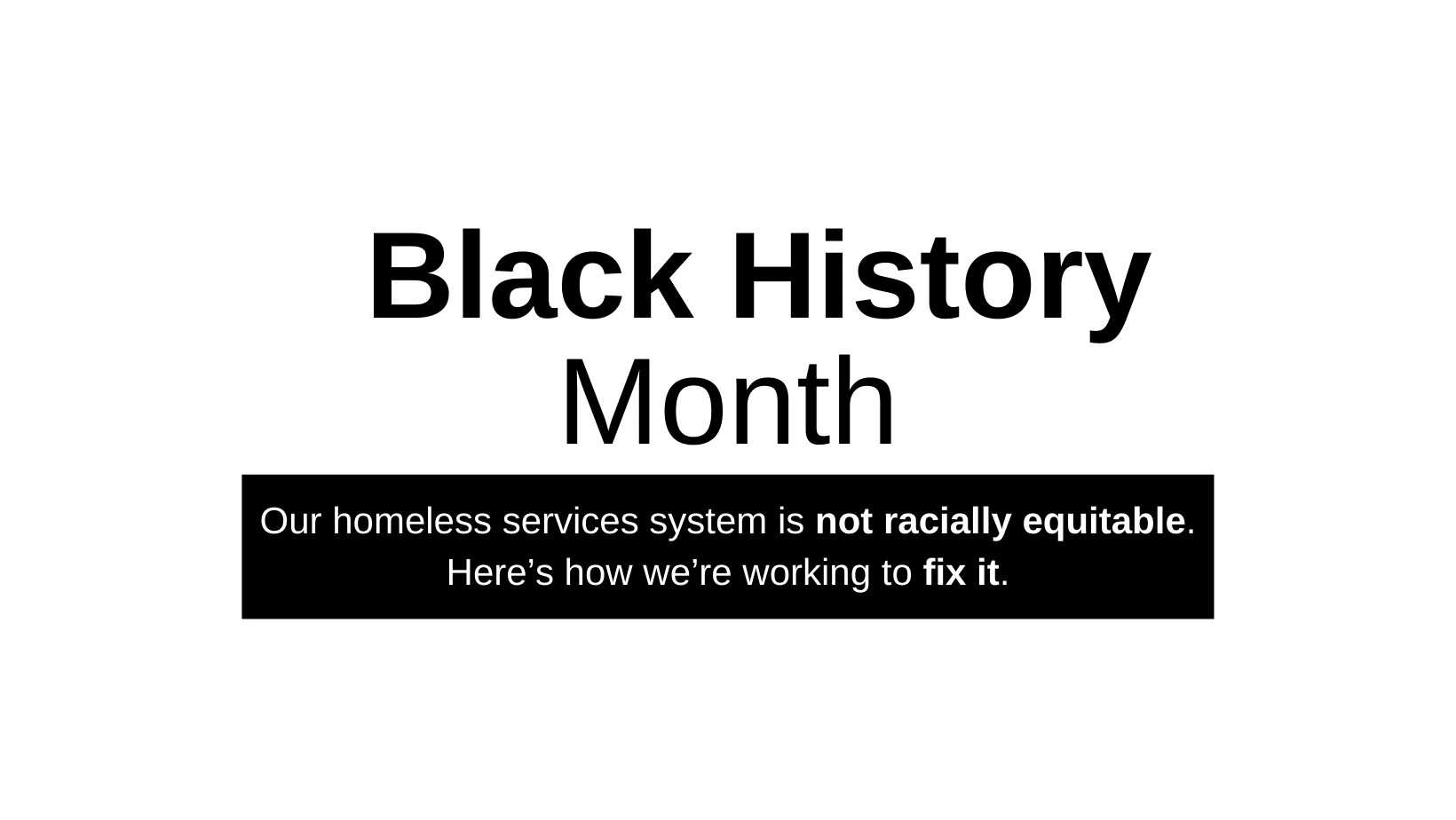Our homeless services system is not racially equitable. Here’s how we’re working to fix it.
AUSTIN, Texas (Feb. 25, 2021) – Austin/Travis County is one of eight communities across the country taking part in the first-ever Racial Equity Demonstration Project organized by the U.S. Department of Housing and Urban Development.
The project, which kicked off late last year, engages a diverse group of service providers, people with lived experience of homelessness, and other community stakeholders. Through facilitated discussions with other communities and equity coaches, the goal is to identify the “friction points,” the parts of our response system that lead to disparities, then fix those problems, said Quiana Fisher, CoC Performance Coordinator at the Texas Homeless Network.

“This has really been a community effort,” Fisher said.
Fisher is a core member of the demo project, as well as a co-chair of the Racial Equity Task Group formed by ECHO’s Membership Council.
“One of the things that I’ve had to become comfortable with is being the agitator,” Fisher said. “I’m not always comfortable in that role, but I have to push through the discomfort because I am in the room where decisions are being made and those most affected by these decisions need me to speak truth to the system.”
In Austin, less than 1 in 10 people in the population identifies as Black or African American, compared to more than 1 in 3 people experiencing homelessness. Through systemic racism in housing, healthcare, policing, education, and many other systems, a Black person in Austin is at least 4.8 times as likely to experience homelessness as a white person. Our homeless response system, through implicit racism in assessment tools, has only exacerbated the problem, prioritizing more white people for housing and leading to more Black people waiting longer for housing despite the same or greater vulnerability.
“We created this system. When it doesn’t work, we have the power to change it,” Fisher said. “I think that there’s a genuine desire to do right by people, but if you don’t have the tools, or if you only have little pieces of knowledge, unintended consequences are going to happen and have devastating effects, life and death effects on the people we serve.”
Fisher spoke with ECHO during Black History Month about the work the equity team is doing. Our conversation, edited for length, follows.
What is it like for you to be involved in a project like this?
Those in our community experiencing homelessness are my people. My cousins, my aunts, people I went to high school with, and people that I have shared a church pew with. My work has really been about trying to connect my people to services. Way before I recognized that the data showed such a huge racial disparity, I recognized that people that looked like me had a hard time navigating the homeless response system. I wanted to, where I could, use my skills to connect them to housing. When I was a case manager, it absolutely was, how do I find out all of the resources I can so that when people call me, I can connect them to services and end the crisis? And now, I’m working at the systems level and have the ability, really the obligation to challenge the parts of the system that aren’t working for my people. The ability to effect change from a systems level is super humbling for me, but also really empowering. I have to remember I’m not doing this for HUD, I’m not doing this for any funders. I’m really doing this for my family, for people that look like me, for my community. Because what I’ve learned in the last eight years is if the homeless response system works for those of us that are systematically oppressed, then it works better for everyone. So that’s absolutely what gives me life as I continue to move forward in this work.
Why do you feel a Demo Project like this is necessary?
My initial answer is accountability. It’s so important that we become accountable to the people most impacted by the work. This demo project is really giving us an opportunity to look at our system, look at the gaps in our system, and think about and challenge the homeless response system. This equity project has also really made me recognize that the answer is not within the system. The answer to eliminating racial disparities is really looking outside of the system and hearing from the community what is needed, how do we best deliver services, what kind of service providers we need and how do we build trust with overrepresented communities. The homeless response system has to put ourselves in a position to receive that information from people and equitably provide services that strengthen community.
How is the group doing that?
We’re still brainstorming as a core team, but what we’re looking at is how do we become more community-based? How do we engage people with lived experience that are within our community to inform the system improvements needed to eliminate the disparate impact? We hope to partner with community providers, grassroots organizations and faith-based communities that are providing housing support and rental assistance effectively to Black people and other overrepresented communities. Because I think the other thing that we recognized as a system is that we don’t know what’s going on outside of our system. We’re so siloed, we’re so stuck in our HUD brain, that we kind of don’t even recognize that there is good work, good housing work, going on outside of our system. This demo project has made it clear that if we as a system want to build trust with the Black community, we have to go and build trust with those service providers that are working well with the Black community.
Is it frustrating for you that this conversation is happening now and not 10, 20, 30 years ago?
I think that the reality is that conversations like this have been happening. I think that people way smarter than me have recognized that more Black people are visible on our streets. People have been talking to their unhoused neighbors, church members, and family members about what was needed to end their housing crisis. The problem is that the formal homeless response system hasn’t relinquished the title of “expert” to those with the lived experience. WE ARE NOW. I find it frustrating sometimes that we as a system have not done a better job just connecting to people, just really getting honest feedback about where we have failed as a system and how we engage people better. One of the things that is so frustrating, especially when you’re looking at our data, is that the racial disparities are so vast. It’s not even close, and it hasn’t been close in a long time. Black people have been overrepresented in homelessness in Austin, in Texas, and they are all over the country. So why did it take us 5011 years to accept the data and make a plan to fix it? White supremacy is why. And more than that, how do we keep the urgency to end this injustice in the forefront of our system? Because I think that we can’t just set a benchmark, we have to eliminate the problem. And I’m hoping that with the urgency of the Racial Equity core team and with the work that we need to do building trust in the community, that we will end the disparate impact for Black people experiencing homelessness in our community.
What do you hope comes from a project like this?
What I hope comes from this Demo Project is the recognition that we won’t end the disparate impact for Black people and we won’t end homelessness without meaningful partnership with community; we don’t have the answers, communities do. Our response system is overrepresented by white folk, and system change doesn’t happen when the decision-making spaces don’t look like the communities that we serve. We have to humble ourselves and recognize that the power and the answers come from people that are most affected.
What is not being addressed through this project? What needs to be done outside of this to make our system more equitable?
We’re definitely looking at the inflow, how to engage people at the front door of our system. This project does not focus on what happens after they’re enrolled in housing programs, after the immediate housing crisis is over. It doesn’t touch on service delivery. It doesn’t focus on outcomes as much, and so, that’s the next step of the work. After this demo project, I think that the work is going to need agitators and people to hold our system accountable to those other pieces, even if we figure out how to engage more communities of color and ensure that they’re doing the Coordinated Assessment, and to decrease the time that Black people experiencing homelessness are on the waitlist – which is the goal of this demo project. We still need to work on increasing positive outcomes for Black people exiting our system.
And you’re going to be that agitator.
Absolutely I will continue to be one of the agitators of our system. I would love to continue that work. I think that I have become more comfortable in that role. But there’s also tons of other people that are working within the core team, the Racial Equity Demo group, people with lived experience, and people that are grassroots organizing around issues related to homelessness and the need for safe, affordable housing. We stand on the shoulders of system agitators that spoke truth to power and fight to improve systems. We can end homelessness if we do this together. We have to keep moving the work forward.


